A negative body image can have profound ramifications for how you feel, day in and day out.
Do you struggle with looking in the mirror and accepting what you see?
Are you constantly criticizing the way your body looks?
In this post, I will break down what is negative body image as well as what causes negative body image. I’ll also cover how a distorted self-image can impact our health and wellness, and finally how to overcome negative self-image!
Thank you for allowing me to support you on your journey towards a healthier body image: you’re worth it!
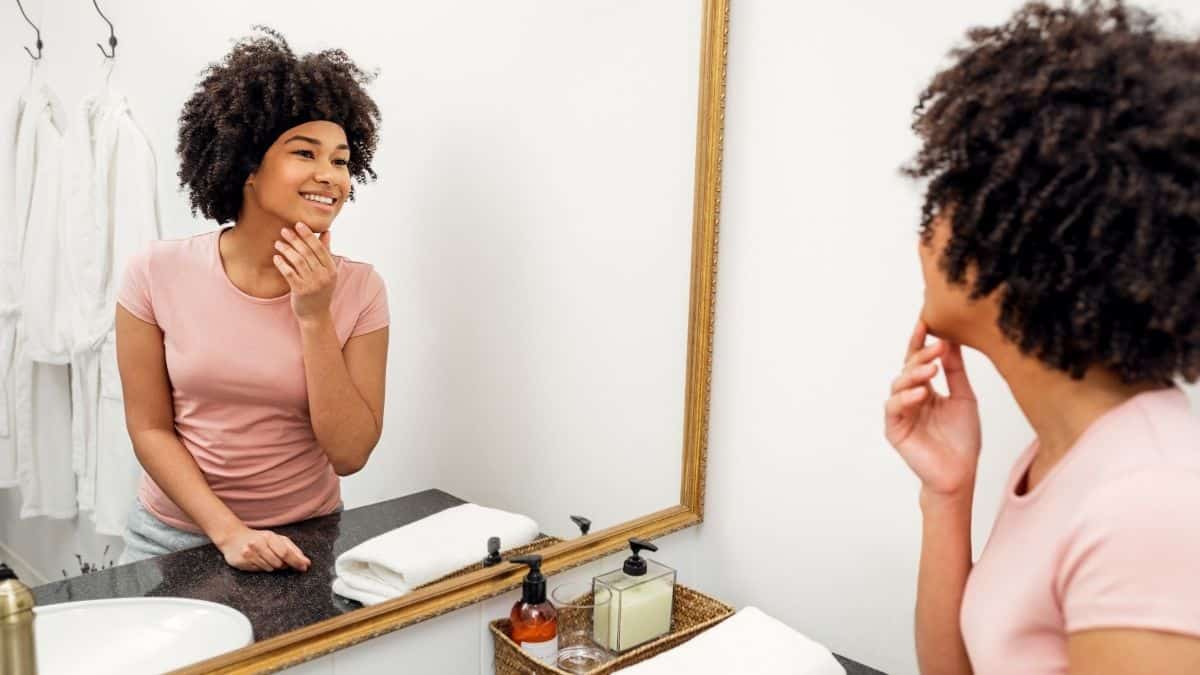
What is negative body image?
Before we get ahead of ourselves, let’s first discuss what a negative body image actually is.
Body image is complex. Size is part of it, but so too is your estimate of how others perceive your body (i.e. “she must not care about herself at all”), how you view individual parts of your body (i.e., “I hate my thighs”) as well as how your body moves and performs (i.e., “I can never be a runner”).
As a registered dietitian, I always like to dig a little deeper, even if this can uncover some uncomfortable root causes. What surprises many of my clients (and truthfully, me as well as I worked to improve my own body image), is that body image isn’t just about your body.
Say what?
The heart of body image is about something deeper: your feelings of self-worth, your feelings of inadequacy and even a cover-up for more painful feelings or insecurities around your work, friends, family, relationships and more.
If you think about it, you can be a person in a smaller body with a negative body image just like you can be a person in a larger body with a positive, rockin’ body image. It isn’t all about size.
Side note: I do believe that thin privilege is a real thing and completely acknowledge that I do have it. Living in a thin body can be “easier” on a day-to-day basis with things like being able to shop at most stores, less judgment, and actually more access to healthcare. Thin privilege is real. And yet, all shapes and sizes can struggle with negative body image.
Which begs the question: where does negative body image come from?
What causes negative body image?
If size has less to do with causing negative body image, where does it all come from?
I see a few common themes with my clients, so let’s cover each of them. Plus, what in the heck to do about it.
Diet Culture Messaging
Our first cause of negative body image is pretty simple and predictable, really. The answer is: diet culture.
Diet culture is the unrealistic expectations that are placed upon us by today’s society that have us striving for a very specific body that is unrealistic. It is also completely arbitrary. Bodies of all shapes and sizes are beautiful and valuable (despite what society’s standards say!).
Our diet culture-infused society places value on a thin body. We’ve been told that being thin will lead to success, love, acceptance, basically everything your little heart desires.
And we see this messaging eVe-rY-wHEre.
We see it all over social media, in our favorite TV shows (aren’t the most successful and likable characters usually thin?), and in ads as we catch up on the latest episodes of our fave TV shows. (Can we pause and just acknowledge what bulls**t it is to have so many food advertisements towards women be about deserving food? Y’all: you always deserve food. You don’t need to have a special occasion to deserve chocolate.)

As we’re going about our day, surrounded by the media, these messages are woven into so many messages. And even if we aren’t actively paying attention to it or don’t hear the words “thin=better,” the connection is made.
Our worth is dependent on our size and our sense of self-worth. Or so diet culture would have us believe.
Diet culture causes us to strive for thinness and compare ourselves to anyone thinner than we are. Even if they’re airbrushed – and we know that – we STILL compare.
We start to get a more and more distorted self-image as we continue to strive for these unrealistic expectations. And we fall into the comparison trap with each and every person we see. (Be sure to check out my post on how to stop the comparison game!)
Being surrounded by diet culture is a major player causing a negative body image. But we can also use negative body image as a way to cope. Let’s explore that next.
Negative Self Image As A Way To Cope
Another way we develop a negative body image is as a coping mechanism for stressful events in our life that leave us seeking more control. When negative body image seems to be worse ask yourself “what else is going on?”. I see this as a red flag for another area of your life.
When things feel out of control, we feel stressed, anxious, moody, and depressed. It is human nature to want to avoid these feelings of discomfort. This is why we have coping mechanisms to numb or distract ourselves from these feelings.
This can impact our body image because we may turn to our bodies – something we feel we can control – as a way to cope. We want to feel “control” especially when we are overwhelmed with things that we cannot control, such as a family member’s illness, social justice issues, overwhelm with our work or studies or even not ever feeling like we can achieve the standards of performance we set for ourselves (hello, impossible standards!).
When we turn to our bodies, trying to manipulate the way they look, we will feel relief from the trauma/emotions we have experienced because we get a break from dealing with them. I mean, society tells us thin = happier, right? (totally not true BTW!) Dieting also offers a distraction. It feels easier to continue to “body check” throughout the day than to focus on the terrible work environment that you cannot change (Not sure what body checking is? I have a blog post for you to check out and learn what it is as well as How To Stop Body Checking FAST!).
Focusing on your weight, size and continuous body checking is kind of like scrolling through social media or binging on Netflix: it is a distraction technique.
And if you’re wondering if emotional eating can also be a distraction technique, the answer is yes. But it may also surprise you to learn that as an intuitive eating dietitian, emotional eating is a valid and worthy tool. Yes: please give yourself full permission to provide yourself care with eating foods that feel good.
You just want to have more tools in your self-care toolbox than only emotional eating. More on that here.
The many effects of negative body image
So let’s get to the juicy stuff. Does it really matter if you have a negative body image?
Yes! Diet culture can have far-reaching effects on your feelings of self-worth.
And a negative body image leads to more diets.
Diet culture tells us that thin = healthy and happy. However, the advancements in the Health At Every Size movement show us otherwise. Healthy behaviors have been shown to be correlated with a decreased mortality risk more than the weight itself.
Health and wellness are not determined by the scale, BMI, etc. Both the Health At Every Size book, and also the Body Respect book, explain this really well and give lots of scientific evidence to support the HAES movement!
You can also check out my blog post: Can Really You Be Healthy At Every Size? (HAES Explained!).
But, in spite of this surprising knowledge from scientific studies… we still strive for thinness. And every time we compare our bodies to the cultural standards and find ourselves different, our body image suffers.
That’s how strong diet culture is. It’s a HUGE industry that makes billions upon billions of dollars each year off of their…well…lies.
The thing here is that dieting and diet culture – striving for that ideal of thinness – is a predictor of weight gain in the long run. (Not a typo friends, that is supposed to say weight gain).
Weight cycling – aka yo-yo dieting – where you are losing weight, then regaining it and then some, losing that, then regaining that and then some, actually increased our risk of disease in the long run.
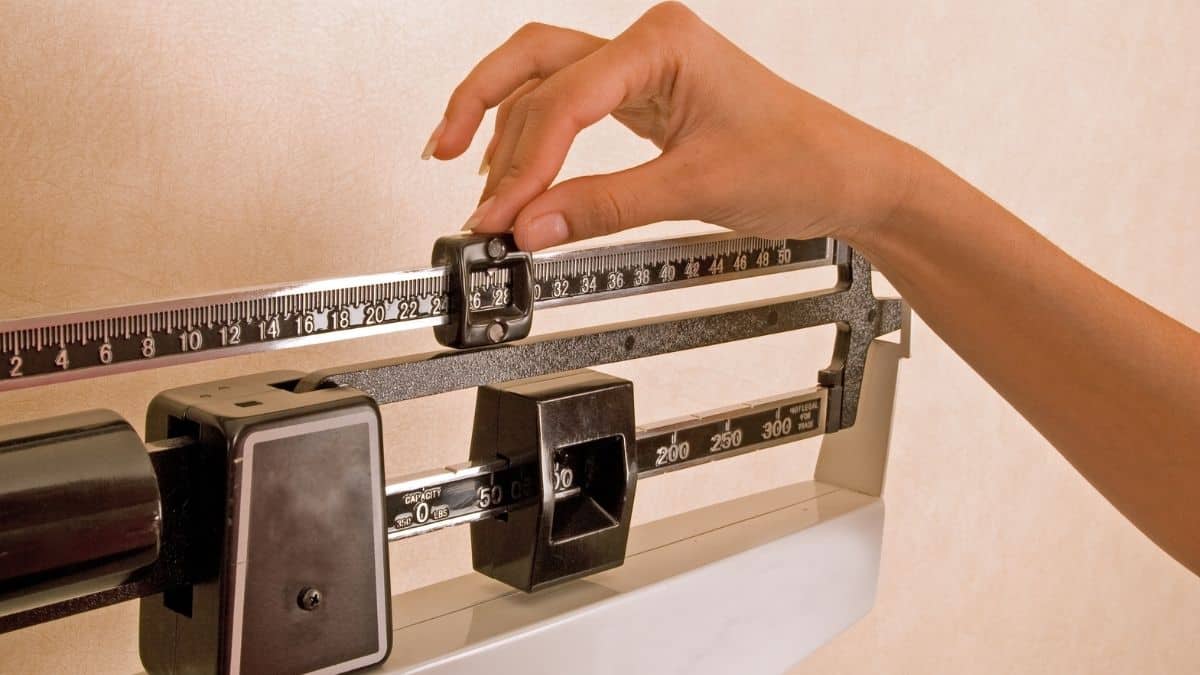
And if you’re saying “Well, it’s the weight gain that is causing those disease risks!”- think again. One study showed that women in larger body sizes who have a history of yo-yo dieting had more health risk factors than women in larger body sizes who have not had the same dieting history.
So, you can see that when we strive for this thinness that we THINK is going to contribute to our health and wellness… the opposite happens! So backward from the daily messages we receive, I know. But it’s true.
Also, negative body image due to fat-shaming and weight stigma can decrease the likelihood of making those health-promoting behaviors we talked about earlier.
Now, I’m not saying that weight loss is BAD by any means. It can be a natural thing that happens. I do believe in the set point weight theory.
Essentially, your set point weight is the weight your body wants to be at and functions optimally at. In order to get there, some may lose weight, some may gain weight, and some may simply maintain weight. None are “bad” and all happen. I have an entire blog post on the set point weight theory which explains this more.
And we haven’t even touched on the mental health and wellness side of things yet! Personally, this is what I experienced heavily during my disordered eating past when I was striving for that “ideal body” that diet culture bestowed upon me.
I wasn’t happy.
I was depressed.
Mostly because I was hangry AF, but also because if we don’t have adequate nutrition due to striving for thinness our bodies won’t be able to produce things like neurotransmitters effectively. Neurotransmitters, such as serotonin, which is responsible for things like mood. On the flip side, dopamine (the “reward” neurotransmitter) may be overproduced, which can lead to anxiety and the ability to go without rewarding and enjoyable things, like food.
To sum this section up: striving for weight loss will lead to more negative health outcomes than simply living in a larger body. And dieting in the pursuit of weight loss and the “ideal body”‘ can zap your joy.
How to overcome negative body image
Alright, the moment you’ve been waiting for. HOW do we overcome negative body image?! Well, gorgeous, here are 5 tips that can help you to overcome negative body image and start respecting & appreciating the body you’re in! It takes time and practice to go against cultural messages, but this will get easier with time!
- Do a social media “detox.”
I feel so silly saying that word, but it fits. Since we know that seeing and consuming diet culture messaging is a reason we GET negative body image, we must do what we can to limit that exposure in order to kick negative body image to the curb.
Go through your social media feeds and unfollow anyone who makes you feel negatively or inadequate about your body. Also be sure to unfollow anyone who causes you to feel like you need to diet. You’re welcome to follow me here!
- Go back to science.
Going back to the above studies that I discussed in the section on how negative body image affects our health really helps me. I’m a facts kinda gal and it’s easy for our thoughts to start swirling around and make us want to change our bodies.
But, when I look at the facts on the impact of dieting and food rules, it helps me to do what I know feels good and will help my health: those behaviors, NOT weight loss.
- Start a journal practice.
Journaling is important for SO many reasons, many of which I discuss in my post on gratitude journaling for mind & body which has over 40+ journal prompts.
Journaling can help manage anxiety and stress, which may worsen poor body image. It can also assess your thoughts and feelings for those diet culture messages. Journaling is one of many options for you to weave into your emotional self-care routine.
I recommend replacing each negative thought with a positive one. So, write down some body-positive quotes (Checkout my body positive Pinterest board for some ideas!). One study actually found that writing down positive body image aspects led to an increase in self-image as compared to those who only wrote about negative aspects.
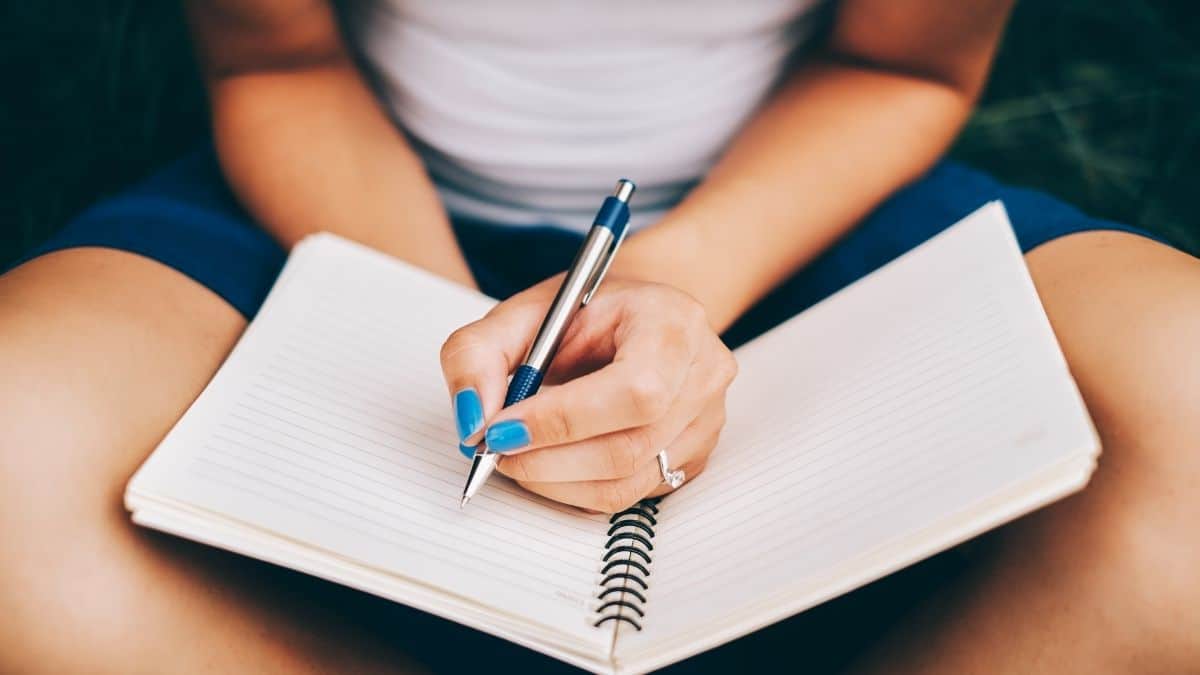
4. Check-in with how your body is feeling.
Focus on how your body feels. Intuitive Eating and food freedom should feel good.
Quick note: there is a difference between feeling physically bad and feeling like you’re being bad. Feeling like you’re being bad is diet culture speaking. You are always allowed to eat, no matter if it is an apple, cake or both.
Ask yourself if you’re listening to your hunger and fullness cues, not obsessing over food and eating in a way that feels good for reassurance. If you don’t feel good then focus on health-promoting behaviors and gentle nutrition NOT the weight. Weight loss may or may not happen with those. It can feel scary to let that goal go, but it is for the best.
Beyond the benefits listed above, journaling has the additional benefit of helping to better connect with your body and her needs. This allows you to build trust with your body and a stronger shield from diet culture.
5. Focus on respect and appreciation.
Let’s be real… we won’t always love the reflection that we see in the mirror. That’s normal, even for me. BUT we can always respect and appreciate our bodies.
I like to list 5 things that I can respect my body for when I less-than-love the way it looks in the mirror. This really helps me make peace with it and also treat it with respect. This goes back to those health-promoting behaviors we chatted about earlier!
6. Use mantras and affirmations.
If you hang around the blog often, you know that I am a HUGE fan of positive affirmations and mantras. I describe it like this: We’re in a forest and so used to traveling a certain path (negative body image). We will continue taking this path because it is clear and easy to follow. Only when we create a new path will we (and our thoughts) go in a different direction.
So, repeating more positive statements starts to create that new path. The more we do this, the more our brains will take that path automatically and leave the negative body image path.
I have a list of intuitive eating affirmations that you can check out if you need some ideas on where to start with this! Think your thoughts don’t matter? Self-affirmation has been tied to maintaining positive self-view and self-acceptance.
And a little bonus one for you, be sure to ask for support when you need it! Don’t feel like you have to work through negative body image alone. Talking it out with a supportive community who is going through the same struggles as you can be sooooo beneficial!
Key takeaways: Negative body image
I hope these tips were helpful in showing you how to overcome a negative body image! Remember, your body image is tied to your own feelings of self-worth and the impact that diet culture is having on you.
You’re worth having a positive body image! When negative body image flares, be sure to ask yourself “what else is going on” and try to get to the root cause. (Psst… the answer isn’t a diet).
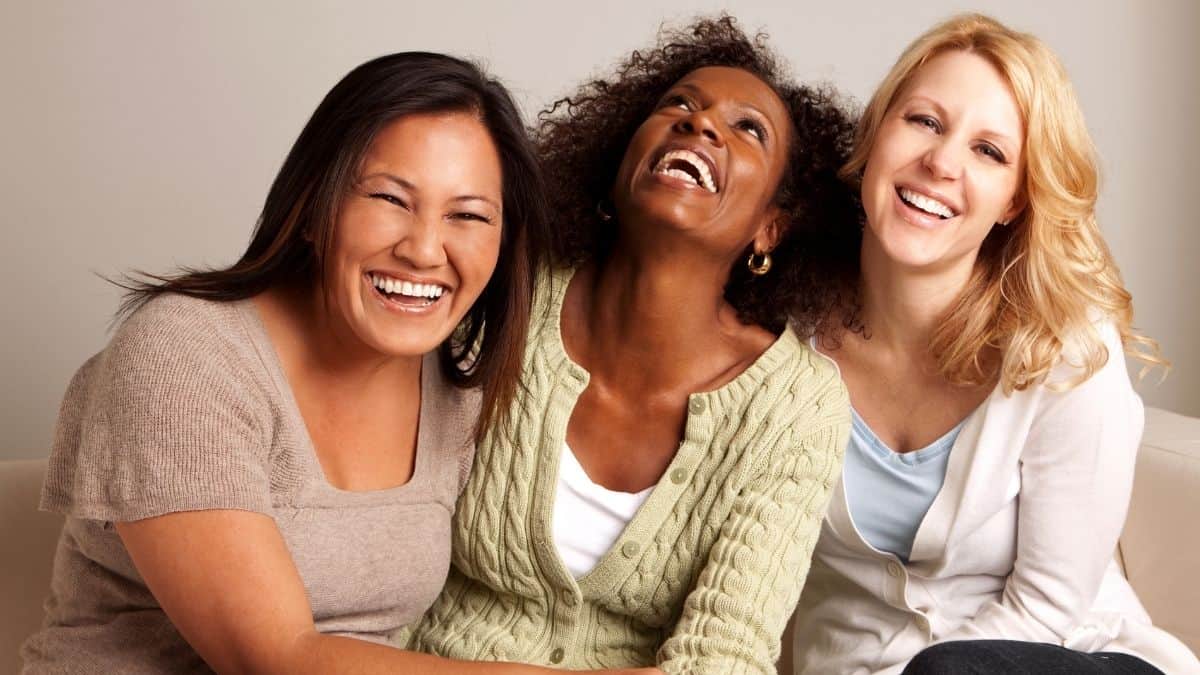
If you’re looking for more body positive inspo you’re in luck because I put together a free 5-day positive body image challenge for you! Each day I will guide you through an exercise to complete in order to help improve body image. I’ll also give you a journal activity each day to further cement those positive vibes. And, it only takes about 5 minutes a day! FAB! You can sign up for the 5-day positive body image challenge here!
XOXO
-Colleen


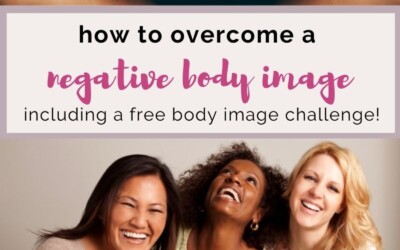
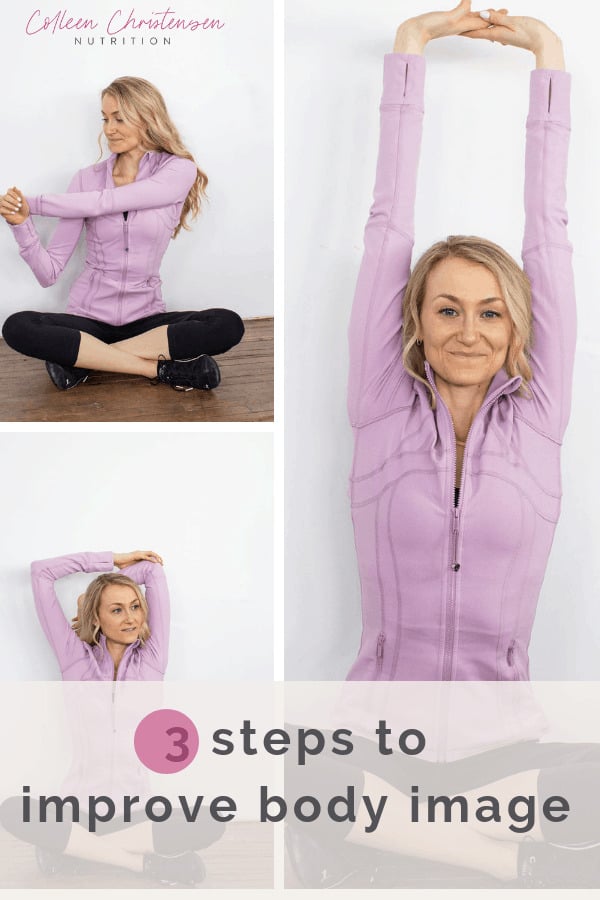

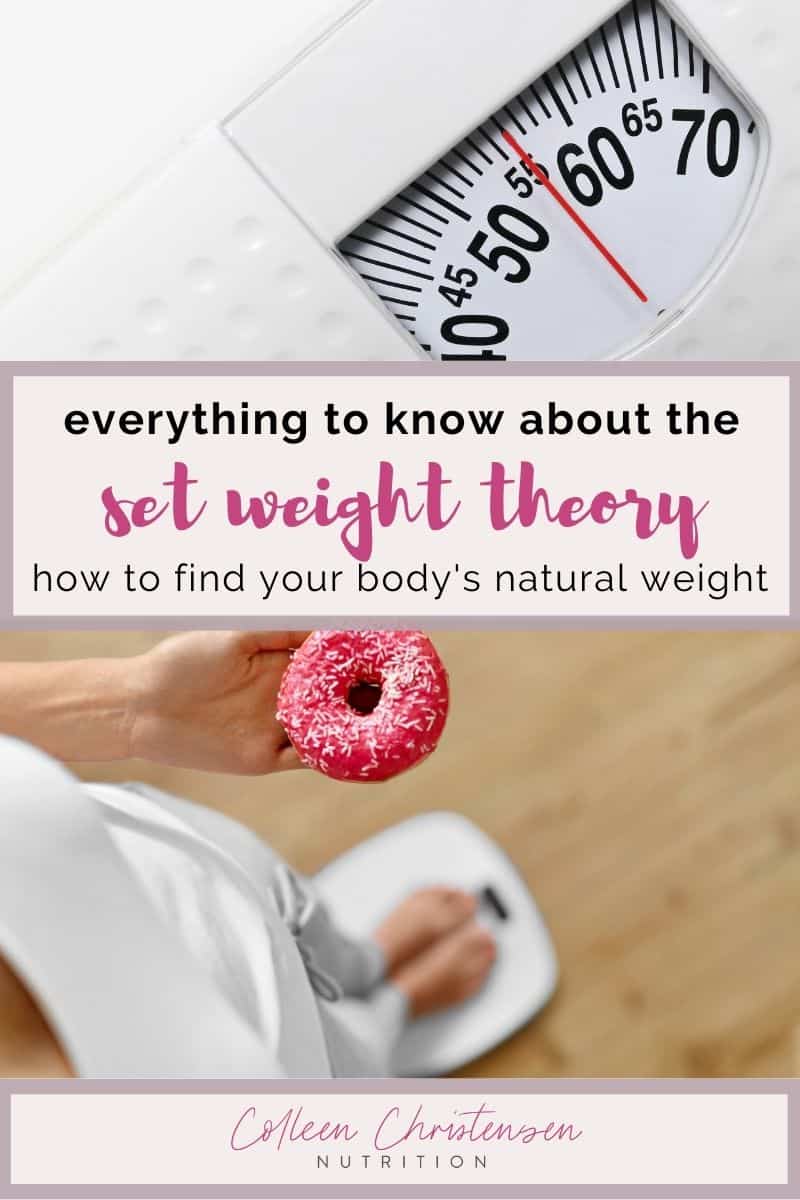
![Secrets From A Clothing Designer! (Why The Problem Isn't YOU) [feat. Tina Beauvais] featured](https://colleenchristensennutrition.com/wp-content/uploads/2021/06/Secrets-From-A-Clothing-Designer-Why-The-Problem-Isnt-YOU-feat.-Tina-Beauvais-featured.jpg)



Leave a Reply